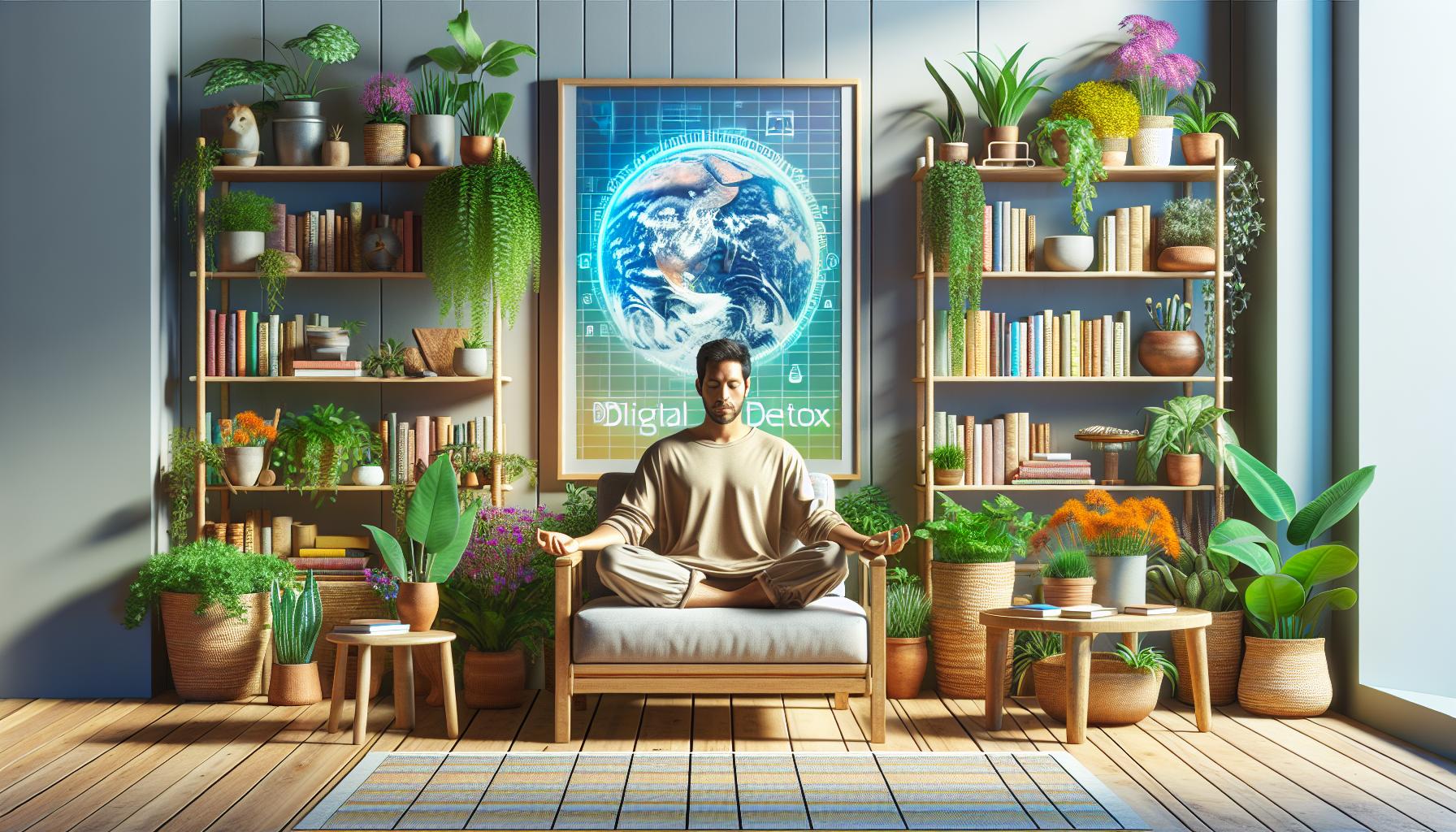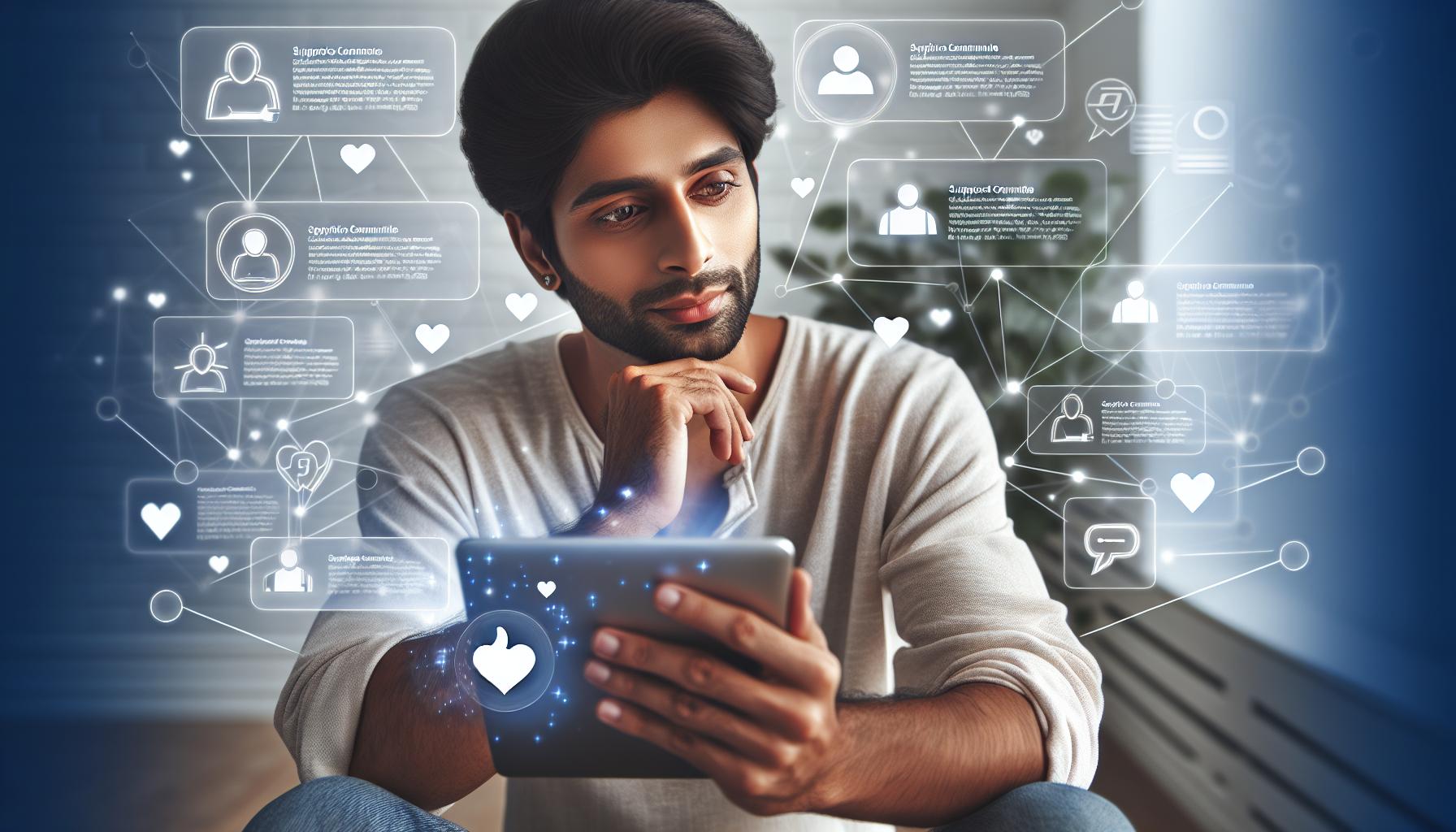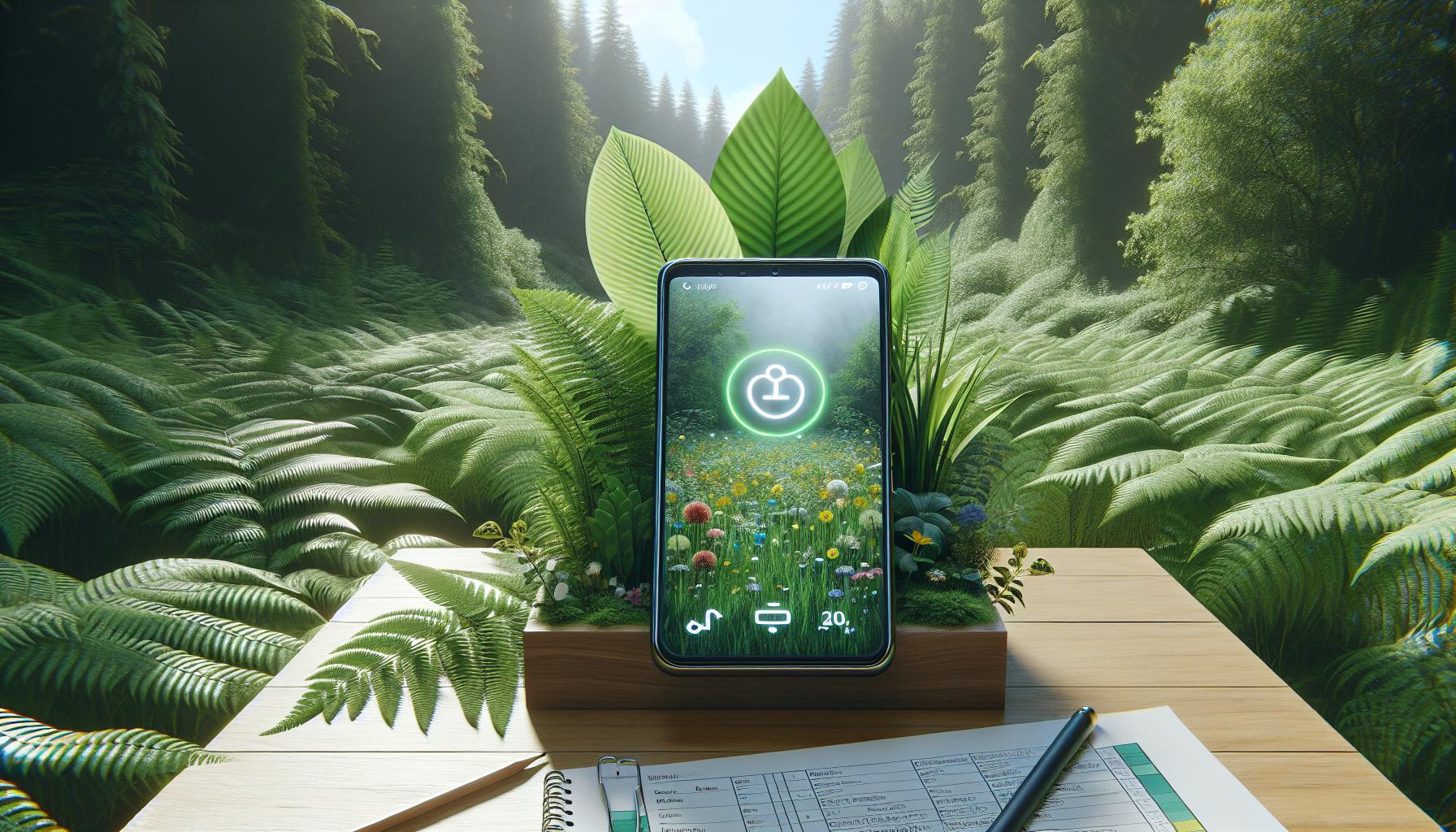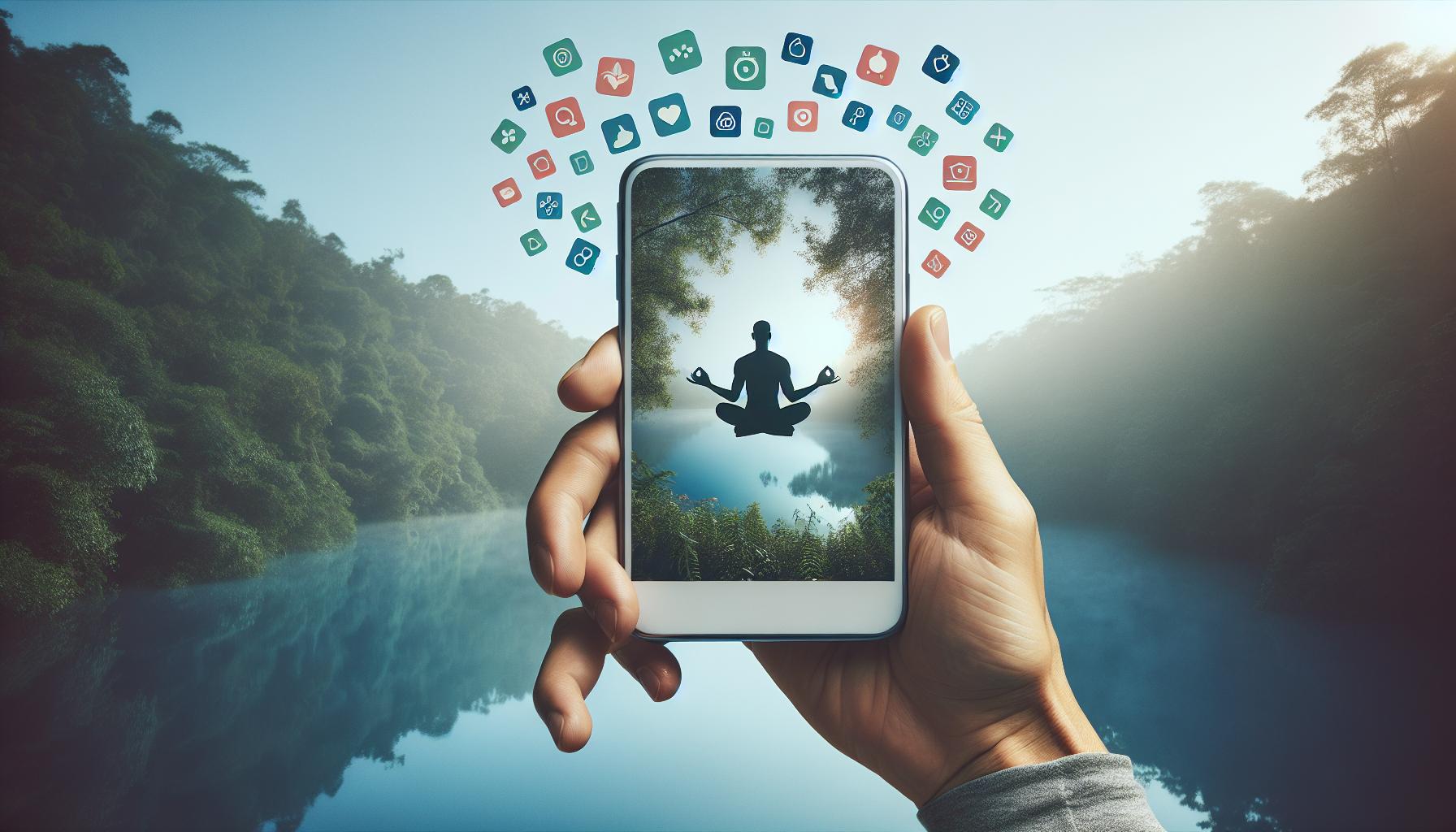Defining Digital Stress and Anxiety
Understanding Digital Stress and Anxiety
The intense use of digital technologies wears heavily on your mental health. The term digital stress and anxiety encapsulates this wear and tear, taking into account any perceived stress, general burnout, bouts of depression, or nervousness. Often these feelings are tied closely to communication and internet multitasking – a phenomenon that has burgeoned in the age of constant connectivity.
Causes of Stress in the Digital Age
Let’s peer under the hood at some of the common factors that drive stress in the digital age. Information overload, for one, is the relentless flood of news, opinions and updates that press in from all sides. Factor in the pressures from social media, the fear of not maintaining a compelling online persona, and it’s a recipe for stress.
Stress also seeps in from the compulsion of constant connectivity. The need to be ever available and responsive can wear you thin and stoke anxiety. You get tied up in knots, straining for social media approval – a sort of ‘approval anxiety’, or desperately chasing experiences for the fear of missing out.
Connection overload – a situation when a myriad of online connections turn from friendly opportunities into demanding relationships – can further compound the situation. Be it the faintest ding of a notification or the bold headlines flashing on screen, every aspect of the digital world has a role to play in shaping your stress and anxiety levels.
The Impact of Digital Technology on Mental Health

The impacts of the digital age are far-reaching. They unfurl deep into our mental health world, altering it in ways that are both empowering and threatening.
The Psychological Effects of Social Media
Think about the last time you flicked through your social media feed. Did you notice the ghost of inadequacy peeping from behind the glamour-filled posts of your peers? This atmosphere charged with a sense of unreal achievement forms a fertile ground for anxiety and depression to breed. Behind the scene, invisible processes like cyberbullying weave a web of isolation that hooks especially the youth, dragging them into its gloom ridden depths. This social media impact on adolescences is a researched facet, underscoring why curating a healthy digital diet is more important than you’d imagine.
Screen Time and Its Consequences
Are your virtual commitments robbing you of your sleep and concentration? Your screen time might be the hidden culprit here. Dark circles, scattered thoughts, and strained relationships often trail behind lengthy digital consumption. Picture this – you’re engrossed in your screen right before bedtime. This triggers your brain into a state of alertness. When sleep and peace of mind become just another casualty in the battlefield of screen addiction, it’s time to rethink your online itinerary. So, what can your digital consumption plan look like? A balanced approach can work wonders here.
The digital age and its myriad influences on mental health aren’t an easy puzzle to solve. But, understanding them paves the way for strategies that can help you weather these online storms, transforming you into a digital-age warrior, ready to conquer the world.
Strategies for Reducing Digital Stress

Even though digital technology’s apparent advantages, it’s often linked to increased stress and anxiety. A balance between digital consumption and mental well-being is fundamental, and this balance is possible through various strategies, including digital detox and setting healthy digital boundaries.
Digital Detox: Benefits and Tips
Imagine a day without constant pings, alerts, and screen time. A welcome respite? That’s a digital detox for you. Engaging in such detoxes, such as reduced screen time and participation in offline activities, can beef up your mental health and well-being. But how to execute an effective detox?
- Set daily limits: Restrict your social media, gaming, and overall online time. Off screen, do things you love.
- Go device-free: Try to dedicate at least an hour before bedtime, completely free of electronic devices.
Bit by bit, you’ll notice improved focus, reduced stress, and lighting up of the often-lost bridge between the digital and real world.
Setting Healthy Digital Boundaries
In a world entwined with technology, establishing time limits and tech-free zones can be your weapon against digital consumption-related stress. Wondering where to begin?
- Work-life balance: Create a schedule separating work and personal time. Avoid non-essential notifications outside of work hours.
- Detox zone: Designate a specific area of your house as a tech-free zone — a haven for unwinding after a day intermingled with bytes and pixels.
By setting these boundaries, you’re prioritising your mental integrity before the digital invasion and taking a step forward in managing the digital overload effectively.
Mindfulness and Meditation in the Digital Era

Exploring the vast digital world can be a taxing endeavour. The constant bombardment of information and the incessant need to stay connected may lead to increased stress levels and a dip in attention span. But, ‘mindfulness’ and ‘meditation’ serve as anchors in this digital storm, fostering mental well-being amidst the noise.
Mindfulness Techniques for Digital Well-being
Constant connection can be overwhelming but integrating mindfulness into your digital interactions can make a world of difference. Think about those moments when you feel compelled to check your phone. It does not always stem from necessity, does it? Often, it’s an automatic response, a ‘digital reflex’ if you will. Curbing these reflexes is the first step towards digital well-being. Foster an awareness of your digital habits, question them, and, where necessary, hit the pause button. This conscious approach towards digital consumption can significantly reduce anxiety and aid focus.
Incorporating Meditation into Your Daily Routine
Hand in hand with mindfulness comes meditation, a complementary strategy to manage digital distractions. You don’t have to be a spiritual expert or bend your body into pretzels to meditate. Just a few quiet moments every day, dedicated to introspection and relaxation, can contribute significantly to your mental health. Whether it’s during your morning tea or right before you drift off to sleep, take the time to disconnect digitally and connect with yourself. Regular meditation not only improves concentration, but it also provides the mental tranquillity often lost in the digital commotion.
In this modern era where our lives are intertwined with technology, let mindfulness and meditation be your guiding lights, promoting balanced digital consumption and a healthier peace of mind.
Building a Supportive Digital Environment

During the constant digital bombardment, you’ve got the power to sculpt a digital environment that’s supportive, rather than overwhelming. You’re in the driver’s seat, able to steer in a direction that prioritises your mental wellbeing.
Curating a Positive Online Presence
Ever noticed how scrolling through an endless stream of perfect lifestyles on social media can weigh heavy on your mood? It’s time to rethink your digital consumption. Your online presence can, and should be, a reflection of positivity and compassion. Start by engaging more with content that uplifts and empowers you. Try following accounts or subscribing to channels that inspire you, fuel your passions, or make you laugh. This small act can be a potent antidote to the onslaught of negativity that seems to dominate online platforms.
Leveraging Online Communities for Support
Feeling isolated in your experiences can escalate anxiety and stress. Fortunately, there’s a whole wide world of online support awaiting you. There are numerous online communities and forums full of people who share your experiences and, crucially, your feelings. Tap into these platforms as a source of connection, understanding, and advice. By participating in these communities, you are not just helping yourself, but potentially offering a digital shoulder for others to lean on.
As you navigate the digital age, remember building and maintaining a supportive digital environment is entirely within your control. Being mindful of your online learnings can help set the foundation for improved mental wellbeing. Now, let’s move onto the actionable strategies for managing screen time efficiently.
Tools and Resources for Managing Digital Stress

With the expanding digital world, it’s not easy staying afloat amidst the wave of notifications, emails and constant online presence. Yet, there are ways to navigate through the surge, allowing yourself to enjoy the digital age without feelings of anxiety or stress sinking you. Below are some essential resources designed to help you combat digital stress or, even what some might term, ‘techxiety’.
Apps and Technologies to Aid Mental Well-being
You have your smartphone on you nearly all the time – why not turn it into a constructive tool for mental tranquillity? Today, there is a surge of digital apps and technologies specifically created to monitor and reduce stress and anxiety levels. Personalised strategies are at your fingertips with these innovative apps that incorporate techniques such as mindfulness, relaxation and cognitive behavioural therapy. Next time you’re feeling bogged down by the digital world, remember, there’s an app for that!
Professional Resources for Digital Stress Management
While technology can offer some great tools, for complicated or intense feelings of digital stress, turning towards professional help might be the best option. Counselling and therapy sessions, both online and offline, are available for individuals finding it hard to manage their relationship with technology. Professionals in this field understand the unique pressures the digital age thrusts upon us and they’re equipped with effective strategies. Remember, you should never be afraid to seek out help when you need it. With continual support and adaptive strategy, maximising your digital well-being is within reach.
Maintaining Mental Health in a Connected World
Digital stress can cause a significant spike in anxiety and even alter our brain structure and function. You’re left wondering, how can we begin to address this? It’s a daunting question with no one-size-fits-all answer, but don’t lose heart. Here are some tried and tested strategies that could guide you towards a healthier digital life.
Strategies for Balancing Online and Offline Life
Living in an always-on culture often makes us feel like we’re on a never-ending treadmill. It’s vital to remember the importance of striking a healthy balance. Take a moment to reflect on your digital habits: Are they enhancing or hindering your day-to-day life? Are they enlivening or draining you? You’ve got to become your own gatekeeper: prioritise essential tasks, uninstall distractions and most importantly schedule pockets of digital detox. Remember, occasional disconnect is not a luxury, it’s mandatory.

